Pulumi
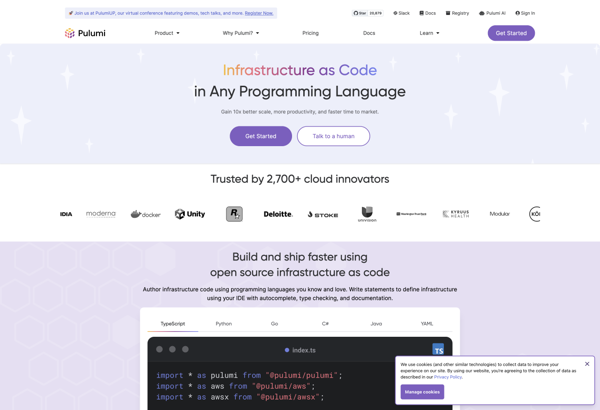
Pulumi: Infrastructure as Code Platform
Pulumi is an infrastructure as code (IaC) platform that enables developers to define, deploy, and manage cloud infrastructure using familiar programming languages. With support for multiple cloud providers, Pulumi simplifies the process of infrastructure automation, allowing users to leverage their existing programming skills to manage cloud resources.
What is Pulumi?
Pulumi is an open-source infrastructure as code (IaC) platform that facilitates the creation, deployment, and management of cloud infrastructure using programming languages. Unlike traditional configuration languages, Pulumi allows users to express infrastructure as code using familiar programming languages such as Python, JavaScript, TypeScript, and others. This approach aims to make infrastructure automation more accessible to developers, leveraging their existing skills and reducing the learning curve associated with IaC. Key Features: Programming Language Support: Pulumi supports multiple programming languages, including Python, JavaScript, TypeScript, Go, and .NET languages (C# and F#). This enables users to write infrastructure code in a language they are already familiar with. Multi-Cloud Compatibility: Pulumi is designed to be cloud-agnostic and supports multiple cloud providers, including Amazon Web Services (AWS), Microsoft Azure, Google Cloud Platform (GCP), and others. Users can manage infrastructure across different clouds using the same Pulumi codebase. Declarative and Imperative Approaches: Pulumi allows users to choose between declarative and imperative approaches when defining infrastructure. Users can express their desired state declaratively or take advantage of imperative programming constructs for more fine-grained control. Reusable Components and Modules: Pulumi supports the creation of reusable components and modules, allowing users to package and share infrastructure code. This promotes code reuse across projects and teams. State Management: Pulumi maintains a state file that tracks the current state of the infrastructure. This state file is used to plan and apply changes, ensuring that the actual infrastructure aligns with the desired state described in the code. Continuous Delivery Integration: Pulumi integrates with continuous delivery (CD) pipelines, enabling automated deployment and updates of infrastructure. This facilitates a consistent and repeatable deployment process. Infrastructure Testing: Pulumi supports infrastructure testing, allowing users to validate their infrastructure code before deployment. This helps catch potential issues early in the development process. Extensibility and Custom Resources: Users can extend Pulumi by defining custom resources using their chosen programming language. This extensibility enables the integration of third-party services or the creation of custom infrastructure abstractions. Collaboration and Teamwork: Pulumi supports collaboration among team members by providing tools for sharing and managing infrastructure code. Features like stack sharing and organization support streamline collaborative development. Community and Ecosystem: Pulumi has an active community and a growing ecosystem of modules, templates, and integrations. Users can leverage community-contributed resources to enhance their infrastructure code. Pulumi aims to simplify the process of infrastructure as code by allowing developers to use the languages and tools they are already familiar with. Its multi-cloud support, extensibility, and focus on collaboration make it a flexible choice for teams managing cloud infrastructure.
Pulumi Features
Features
- Supports popular programming languages like JavaScript, TypeScript, Python, Go, and .NET
- Enables infrastructure as code using real languages instead of domain specific languages
- Provides SDKs for major cloud providers like AWS, Azure, and GCP
- Allows management of infrastructure through code, including deployments, updates, etc.
- Includes a CLI and GUI for managing stacks and viewing deployment history
- Integrates with popular CI/CD platforms
- Offers reusable components and libraries for common infrastructure patterns
- Provides parallel deployments and incremental updates to resources
Pricing
- Free
- Open Source
Pros
Cons
Official Links
Reviews & Ratings
Login to ReviewThe Best Pulumi Alternatives
Top Development and Infrastructure As Code and other similar apps like Pulumi
Here are some alternatives to Pulumi:
Suggest an alternative ❐Terraform
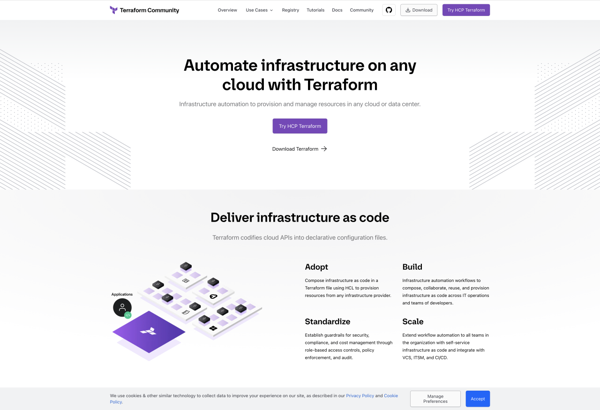
Ansible
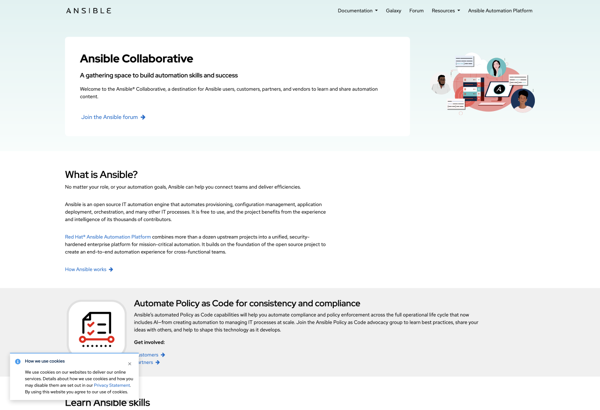
AWS CloudFormation
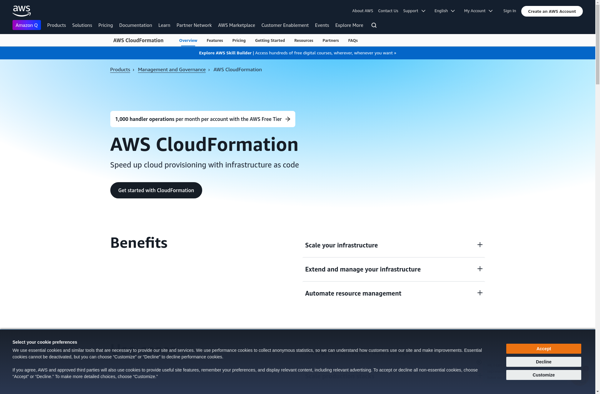
Altostra
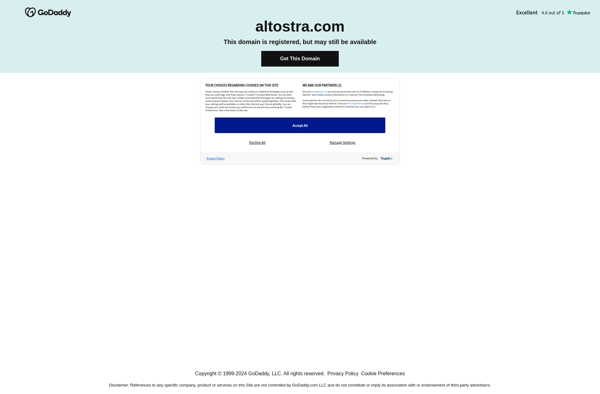
Gyro Tool
